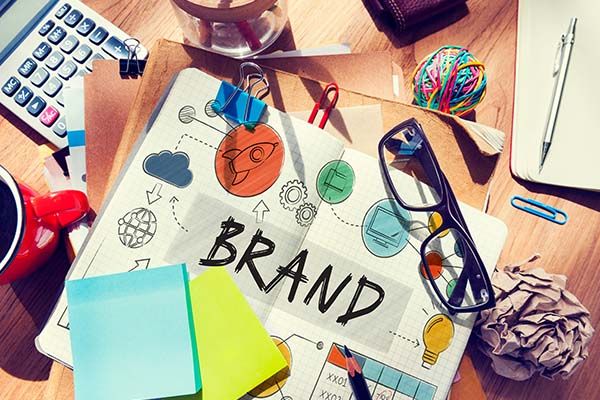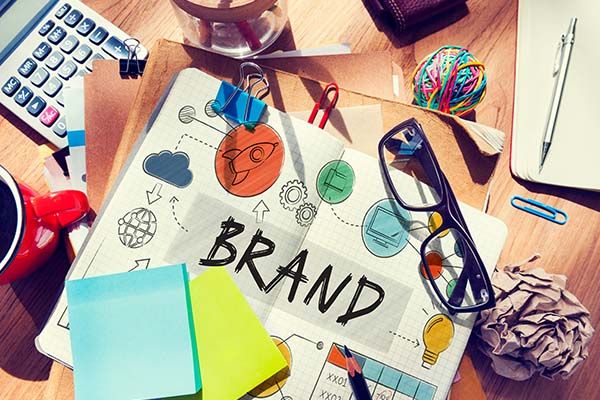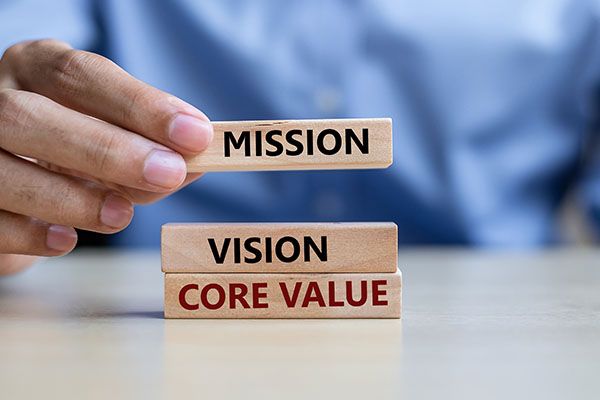Personal Branding – Why It Matters In A Digital World

About The Brand Enabled Podcast & all episodes
I’m joined by Rachel Lee. Rachel, say hello to the folks.
Hello. It’s great to be here, Greg.
It is such a wonderful treat to have you here. I usually talk about people who manage brands. Now, maybe we’re going to be able to talk a little bit about how people manage their own brands, and what it means in this new era. Tell people about the company you’re at and your worldview of how you’ve helped senior leaders and entrepreneurs establish themselves.
Thanks for having me. I am now an entrepreneur and business owner and leading a company called Standout Authority. My background was at a marketing agency, Walton Isaacson, and then got my MBA and was at Microsoft on the B2B channel side or partner side, then at Gartner, where I was leading brand and marketing strategy, reporting to the CMO for brand called Software Advice.
Now that I’ve had the corporate marketing experience, I have been on the agency side, and now I’m running my own company which is a boutique agency, I think that there’s a massive shift that’s happening. Part of the reason that I am part of the Great Resignation is because I felt like I couldn’t share my voice entirely.
Whether we own our own business or our leading company, we as business leaders have to think about human-to-human connections internally with our employees and leadership team.
I have great mentors and great leaders. Don’t get me wrong, I still am in touch with the CMOs and the CEOs of the companies, and they were my bosses, and I love them. The construct of many corporations and small businesses is very transactional revenue-focused. People are caught in not really owning their voice because they’re so content in creating for the business, and that’s not what we want.
Things have changed. They talked about if you lose your voice, you’re likely to lose your loyalty. If you lose those two, you look for an alternative. In this digitally-enabled world of all this brand and marketing, it’s like a symbiotic thing of what the company has to do and what brand leaders have to do. It’s what you were telling me. Am I getting that right so far?
Yeah, what’s happening is that we believe at Standout Authority that we’re in the human revolution. LinkedIn believes that too on their reports as we are in the human era, which I think was so perfect. What that means is that it’s not about B2B and B2C. It’s about H2H, human-to-human connections. We, as business leaders, whether we own our own business or leading a company, have to think about those human-to-human connections internally with our employees, with our teams, leadership all the way down, and then our human-to-human connections and relationship company to their customers, then employee to customer.
There are many different pieces, but at the end of the day, people want to talk to a person. It’s crazy to think. We’re only a few decades into having the internet and worldwide web. We’re only like twenty years with Facebook. LinkedIn is almost twenty years old, but TikTok is only new. Things are moving so fast, Greg. With that pace of change, it’s changing the customer, the consumer behavior. Your customer is the same person that’s reading Instagram at night. It’s the same human and same person.
Leadership teams have an opportunity, the CMOs, the C-suite, to think about the human. Our employee is not just an employee, they’re a teammate. They’re human. What can we do to support their mission, their individual growth as a company, and allow them to be an individual? We also need to understand that from our customer-base, they’re humans. What are their wants and needs? How do I actually connect into their lives? That’s why branding and personal branding, content marketing and the creator economy, that’s why it’s so alive right now because people want to connect at a deeper level, especially while we’re still experiencing the pandemic. It has changed the relationships that we have with each other.

Personal Branding: Personal branding lets us think about what we are here to create, what is our why, and our value proposition.
Years ago, my first digital conference I went to, I was on a panel. They said, “What do you think of the conference?” I said, “Digital is so great. Why are we at a conference?” It’s not a binary thing. You have digital or you have a human connection. You have to have both. Now you’re talking about, and introducing this idea that there are two levels or two types of human connection. One with the consumer, but also with senior management with their employees. They have to invite their voice in to generate loyalty. Which one do you tackle first and how do you tackle it?
First and foremost, at the end of the day, we all care about ourselves. Let’s be honest. At the end of the day, I care about myself, and first and foremost, I want to create a career that I love. I want to enjoy my job. Most people don’t want to just get paid because they need the money. They want to get paid because they enjoy what they do.
That would be better than just making it pay your mortgage.
We want to love what we do. All of that is personal branding in my mind. Personal branding is ultimately how others see you. It is that reputation, the perceptions, the impressions, the relationships that you’re having with others, and most importantly, how you see yourself. This piece of how you see yourself is where we’re seeing this major shift. With the Great Resignation, great reshuffle, great reimagination, the greats, every person was stuck at home and it was like, “I don’t like this job that much.”
Personal branding is how others see you. It is the reputation, perceptions, impressions, and relationships you have with others. And most importantly, how you see yourself.
“What am I doing?”
“What am I doing with my life?” It was like this awakening to be honest, a very spiritual and individual awakening that’s also happening. Personal branding allows us to think about what are we here to create? What is our why? What is our value proposition? I define that by our skills, our audience, our differentiation, and what we’re passionate about. When me as an individual understand that, and my mission and vision can connect to a company to their mission, can connect to the leadership team, that is the magic. That’s the golden opportunity.
All that has to line up for it to start to execute and work, “I have to have a voice. My leader has to share that voice. We have to have a similar voice to the consumer.” If I can get that, it sounds like I get a platform to launch. Where’s the bottleneck? It’s easy to describe the great solution, but where’s the great problem?
The problem is nobody is actually focusing on their personal brand. Instead what’s happening is you’re the CMO, you’re working for a company and you’re like, “I have this budget. I can spend it. I have to manage my team. I have to fire people, hire people.” We’re in the day-to-day, we’re losing touch with what we want and why we’re here to do what we do, that fullest expression of our story of who we are. We’re not being given the opportunity to express that with our teams, with our employees and online. Many companies restrict their leaders and people from speaking on stages, from posting content, because it could potentially affect the company.
I get it. There should always be guardrails, social media guidelines, but we cannot restrict our people anymore. We have to help people truly understand their why, their mission, and use our company and our mission and our capabilities to allow them to flourish. What I think the bottleneck is, is that leaders are not being given the opportunity to find out why they care about this. They’re not finding that emotional connection into their day-to-day work, the love moments.
Greg, I’m a LinkedIn creator. I’m creating content constantly. We’re here on a show for me. This is an energy driver. This is my passion. This is part of my life. This is why I left corporate because I did not feel I could fully share my authentic voice without getting handcuffs inside those companies. I thought it was just for me. A lot of people feel that way. However somebody wants to share their voice, we have to give that light and opportunity, that individualism, that opportunity to be our authentic selves, to be able to share with the team, to be able to share online, but of course with guard rails. When we can ignite that fire in the leadership team all the way down through the personal branding, it affects the customers.

Personal Branding: We have to help people truly understand their mission and use our company, our mission, and our capabilities to allow them to flourish.
It ends up being something incredibly authentic.
Authentic and powerful. The content is powerful. The customers feel it. They feel your love. They don’t feel like they’re just a transaction because they’re seeing you, they’re hearing you. It’s a massive opportunity for executives to communicate their authentic voice, give them permission to do that, and to give their teams permission to express their authentic voice in however they feel necessary.
It’s a human value chain on top of the ecosystem of brand technology and digital enablement. The more you light the fire under the individual, the greater the resonance of the brand ultimately in the market, which is the hypothesis. I think it’s true. For my last question, it’s a one-word answer. What do you think in this human era about digitally-enabled branding, and you can’t say personal branding, you have pick another word and tell us why.
It means all about being creators. We are in the creator economy, Web 3.0, and that means a lot of things. It goes back to that personal brand because we are all creators. If you post this, Greg, you’re creating, you’re putting content. You are a creator, you are expressing your voice. I can be creative inside my company. I can create a mentorship circle. I can create a new initiative. Igniting that creative juice is how we go to the next stage of digital enabling, digital revolution.
You’re going to have the fire of creativity and delivery of creation to get us together and make it happen. Rachel, it’s nice to have you on the brand. You’re talking to people who build brands, but probably need an opportunity to think about this and find ways to ignite their fire. I’m glad you’re on the show. It’s a great point of view. I really appreciate it.
Thanks for having me, Greg.
See you next time. Thanks a lot.
Important Links
About Rachel Lee
 Rachel B. Lee is a fearless brand marketing #ladyboss.
Rachel B. Lee is a fearless brand marketing #ladyboss.
After receiving her MBA from the University of Texas, Austin, McCombs School of Business, she entered the technology industry at Microsoft.
Rachel achieved over a billion impressions in 2017 as the social lead for Microsoft Inspire and won the speaker excellence award in 2018 for her session on modern selling and LinkedIn. Her multimillion dollar brand strategy for the Microsoft Partner Network still reaches millions.
Previously she was a Gartner Senior Brand Manager leading the brand and marketing strategy for Software Advice, a $50M+ revenue business.
She’s now Co-Owner and CMO of Standout Authority, helping C-Level executives, entrepreneurs and business owners define their personal brand strategy, create influence, and build human connections online through the power of LinkedIn. She’s part of the LinkedIn Creator Program and one of the few hundred LinkedIn Audio testers out of 800M+ LinkedIn embers.
She’s also a Texas MBA and MS Industry Consultant helping students build their careers and confidence, and stepmom to two beautiful kiddos, Jayden and Skylar, and dog mamma to Frankie B. Lee.